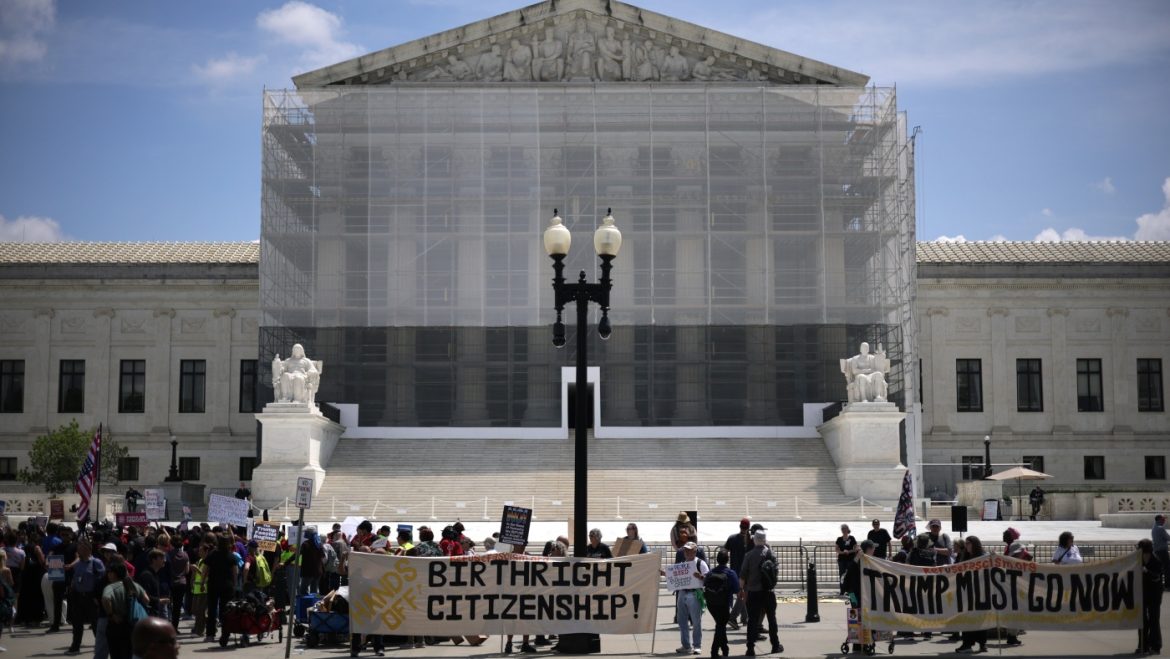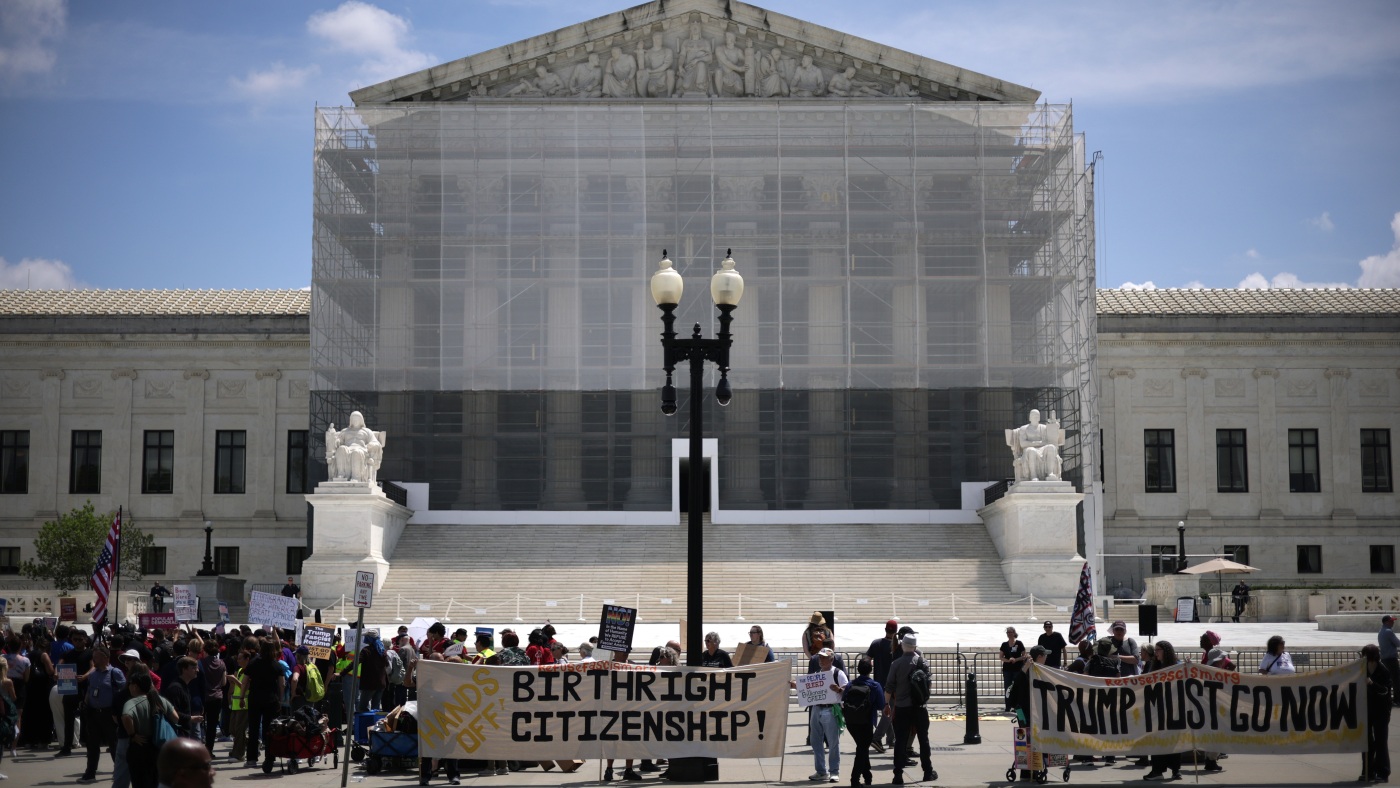The recent U.S. Supreme Court session brought to the forefront two major stories capturing public and legal interest: the contentious debate over birthright citizenship and the criminal trial of hip-hop mogul Sean “Diddy” Combs. These issues, vastly different in subject matter, were both under intense judicial scrutiny and media coverage, reflecting ongoing battles over constitutional interpretation and high-profile legal proceedings.
Birthright Citizenship: A Divided Supreme Court and a Constitutional Crossroads
The Supreme Court justices engaged in a probing discussion over birthright citizenship, a constitutional guarantee enshrined in the 14th Amendment. This clause has long established that any child born in the United States is automatically a citizen, irrespective of the parents’ immigration status. However, this principle faces challenges from an executive order issued by former President Donald Trump seeking to restrict birthright citizenship for children born to undocumented immigrants.
Judicial Division and Legal Arguments
The Court appeared noticeably divided during the oral arguments, signaling deep uncertainty and contrasting views among the justices regarding the scope and limitations of the Citizenship Clause. Several justices questioned the federal government’s authority to restrict this constitutional right via an executive order without legislative backing. The core debate extended into whether the judiciary has the power to impose nationwide injunctions that block the enforcement of such orders across the entire country.
Justice Sonia Sotomayor and other liberal justices emphasized the inviolability of the original birthright citizenship guarantee. They pointed out legal precedents reaffirming inclusive citizenship and cautioned against any unilateral actions that undermine it. In contrast, some conservative justices appeared willing to entertain a narrower interpretation, worrying about the broad judicial injunctions and their implications on immigration policy and federal authority.
Nationwide Injunctions and Federal Court Powers
A pivotal legal issue underlying the birthright citizenship case concerned the power of federal judges to enforce nationwide injunctions. Some justices expressed concern that without these injunctions, inconsistencies would arise—some children might be denied citizenship depending on local court rulings, creating a patchwork legal landscape. Others suggested that nationwide injunctions might be overreach, disrupting a balance of state and federal judicial authority.
Lower federal courts have uniformly blocked the executive order, ruling that it violates the citizenship clause and oversteps executive power. Now, the Supreme Court’s decision will either affirm this block or carve a new path shaping birthright citizenship and federal court remedial powers.
Broader Constitutional and Social Implications
Beyond immediate legal questions, the case touches on deeper societal and constitutional themes—immigration policy, equal rights, and the fundamental definition of citizenship in a modern America facing demographic and political shifts. The permanence of the 14th Amendment’s birthright citizenship safeguards and the judiciary’s role in protecting or revising such will have long-lasting influence on social cohesion and immigrant communities’ futures.
Diddy’s Criminal Trial: A Week One Recap of High-Stakes Testimony
Meanwhile, the trial of Sean “Diddy” Combs has captured attention due to its star power and serious allegations involving alleged victims. Week one saw the testimony from witnesses including Cassie Ventura, Combs’ former partner, who took the stand for cross-examination. Her testimony and statements form a key part of the prosecution’s case, aimed at undermining the defense’s narrative.
Legal Strategies and Witness Impact
Diddy’s defense team has worked to discredit the accusers and strengthen their narrative, while the prosecution has relied on detailed witness testimonies to establish credibility and factual basis for the criminal charges. The proceedings have seen intense cross-examinations, with particular focus on the circumstances surrounding the allegations.
The trial enjoys significant media attention, partly due to Diddy’s celebrity status, which adds layers of public fascination and pressures the judicial process into a high-profile arena. Observers note the legal complexities surrounding the testimonies and the balance between protecting victim rights and ensuring a fair defense.
Cultural and Public Dimensions
This trial also highlights the changing dynamics of celebrity accountability in the age of #MeToo and public scrutiny of sexual misconduct allegations. It reflects broader societal conversations about power, consent, and the intersection of fame and justice.
Conclusion: A Nation Watching Legal Battles over Identity and Justice
The simultaneous unfolding of these legal sagas—the Supreme Court’s intricate deliberations on birthright citizenship and the unfolding trial of Sean “Diddy” Combs—speaks to America’s multifaceted challenges. The Supreme Court’s decision will crystallize constitutional interpretations with profound effects on immigration and citizenship law, while the Combs trial exemplifies ongoing societal efforts to confront and adjudicate allegations of personal wrongdoing amidst fame.
Together, these stories illuminate the dynamic tensions between constitutional rights, judicial power, public accountability, and cultural shifts. As the Supreme Court wrestles with fundamental questions of national identity and judicial authority, and as the criminal trial probes matters of personal justice and celebrity influence, the outcomes will resonate far beyond the courtroom walls—shaping legal precedents and societal attitudes alike.


